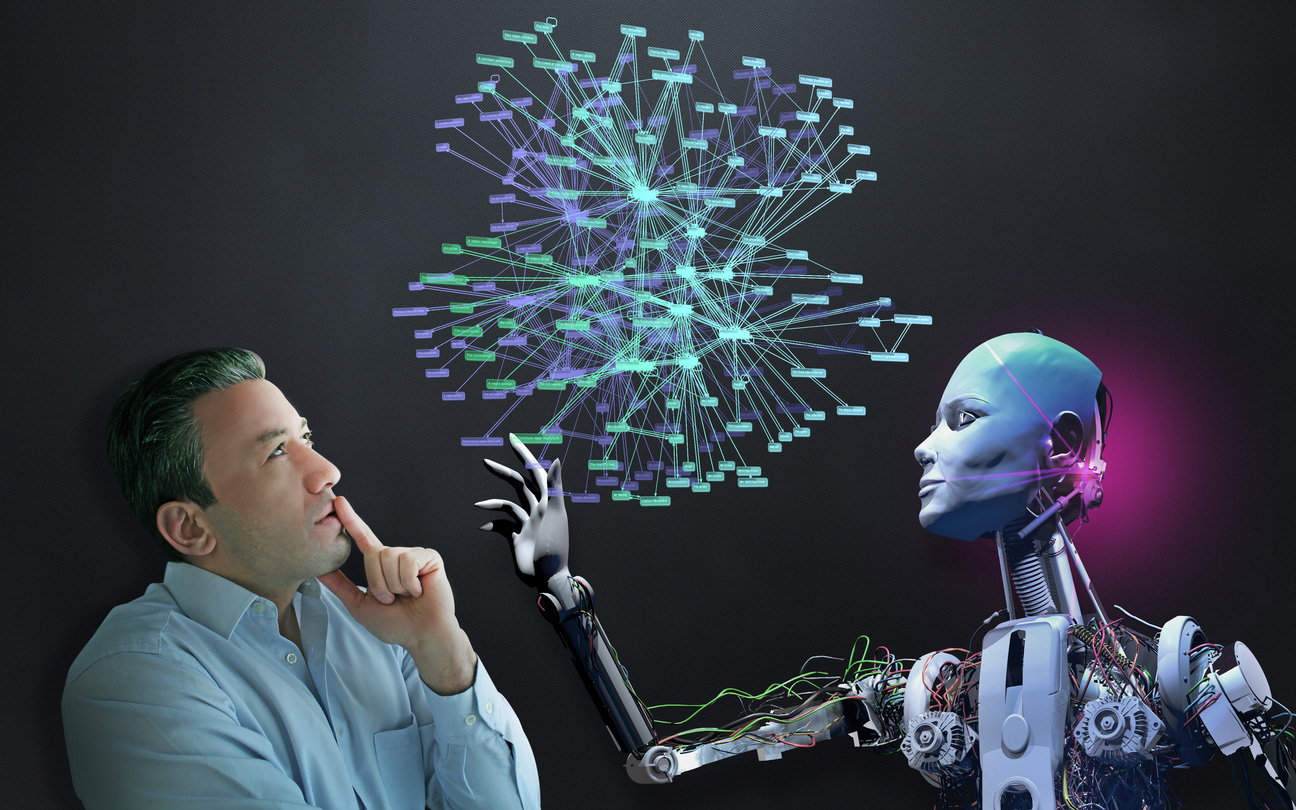
-
Published: 05 April 2023

Microsoft and Google announced the integration of artificial intelligence technology into their information programs used by companies within a few months.
EDITED BY | CHRISTIAN MEGAN
H.TECH. SECTION
5 APRIL 2023 - FRANCE
Paris - Analysts suggested that integrating artificial intelligence into the most widely used informatics programs in offices around the world would provide exceptional features for those who use computers in their work, such as the ability to create a summary of a video meeting with a single click.
Microsoft, the owner of Word, Excel, PowerPoint, Teams, and Outlook, and its competitor Google, owner of Docs and Gmail, announced in mid-March that they would “incorporate artificial intelligence technology into their information programs used by companies within a few months.” They announced the launch of the experimental stage.
And the number of studies is increasing to predict the great impact that artificial intelligence will have on the business world, with hundreds of millions of jobs being damaged or even replaced.
“Different activities in all fields will be affected” by AI, says Nicolas Gaudemé, an artificial intelligence specialist at One Point.
A recent study by Goldman Sachs indicates that about two-thirds of existing jobs in the world could become automated to varying degrees, while generative AI that creates content will replace about a quarter of tasks.
Through extrapolation, the bank concluded that generative AI could automate around 300 million full-time jobs.
Administrative and legal jobs will be the most affected, but on the other hand, generative artificial intelligence will contribute to creating new job opportunities and modern professions.
And being one of the factors in increasing productivity, “artificial intelligence may contribute in the long run to raising the global gross domestic product annually by 7 percent,” according to Goldman Sachs.
Demonstrative videos from Microsoft and Google show what integrating artificial intelligence into their programs can provide, such as data analysis in Excel, pre-made email messages, mailbox management, and other vast possibilities.
One of the main changes is that the user will be able to formulate their requests in simple language without having to master the complex details of the programs.
And the pioneer in the field of artificial intelligence in France, Françoise Soulier-Vogelman, confirms, during a seminar recently organized by France Digital, which she points out as the first consortium of startups in Europe, that “the interface, that is, the point of interaction between more than one component, represents a revolution” in this field.
Once these tools are in use, Gaudeme says, they will be difficult to do without. “We will be able to do additional tasks more quickly, such as looking at summary texts instead of reading entire documents. And companies that don't use it quickly won't make progress."
As for Soulier-Fogelman, she believes that “we must help our companies grow using artificial intelligence, otherwise they will not survive,” adding, “Should we trust this technology completely? both! We have to use it.”
The integration of artificial intelligence into computer programs will be a win for Microsoft and Google, which will sell the new service for high sums. But companies will have to face additional challenges.
Within companies that are starting to use AI, a third of employees say the technology has automated a range of tasks.
But half of them indicate that it has created new tasks, according to a survey conducted by the Organization for Economic Co-operation and Development of 5,000 employees and 2,000 companies in Europe and the United States, published in March.
Three-quarters of AI users in the survey indicate that this technology has contributed to accelerating their business. And while 80 percent of users confirm that artificial intelligence has improved their performance at work, 14 percent to 19 percent are very concerned about losing their jobs or that artificial intelligence will reduce their salaries.
Fifty-seven percent of employees want to ban the use of artificial intelligence in layoff decisions, while 40 percent want it banned in recruitment procedures.
Half of them fear that artificial intelligence applications in the companies they work in will collect information about them or their way of working, while they feel that they are under increasing pressure regarding their performance.
{source}<script async src="https://pagead2.googlesyndication.com/pagead/js/adsbygoogle.js?client=ca-pub-4474625449481215"
crossorigin="anonymous"></script>
<!-- moss test ad -->
<ins class="adsbygoogle"
style="display:block"
data-ad-client="ca-pub-4474625449481215"
data-ad-slot="6499882985"
data-ad-format="auto"
data-full-width-responsive="true"></ins>
<script>
(adsbygoogle = window.adsbygoogle || []).push({});
</script>{/source}
